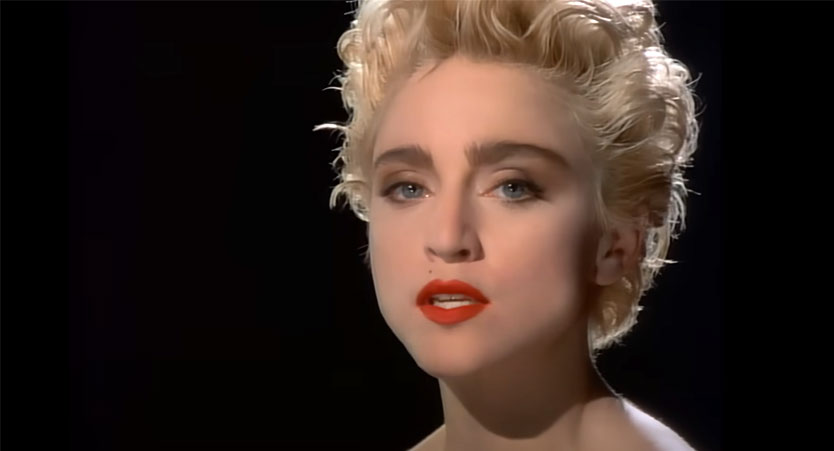Madonna – “Papa Don’t Preach”: A Pop Anthem Wrapped in Controversy and Strings
Released on June 11, 1986, “Papa Don’t Preach” was the second single from Madonna’s third studio album True Blue. Written by Brian Elliot, with additional lyrics and production by Madonna and Stephen Bray, the song was inspired by teenage conversations Elliot overheard outside his North Hollywood studio. Originally intended for another artist, it was pitched to Madonna by Warner Bros. executive Michael Ostin, and she immediately connected with its themes of defiance and independence. The track marked a turning point in her career—both musically and visually—introducing a more mature sound and a tougher, more introspective image.
Musical Style and Themes
“Papa Don’t Preach” opens with a dramatic string arrangement—crafted by Fred Zarr on an Emulator II synthesizer—that sets the tone for a song that blends dance-pop, baroque pop, and post-disco textures. Madonna’s vocal delivery is more restrained and emotionally nuanced than in her earlier hits, spanning from F3 to C5 over a 116 bpm groove. The production layers synths, guitars, and orchestral flourishes, creating a cinematic backdrop for a story that’s anything but lightweight.
Lyrically, the song is told from the perspective of a teenage girl who confesses to her father that she’s pregnant and has decided to keep the baby. She pleads for understanding while asserting her autonomy: “Papa don’t preach, I’m in trouble deep / But I’ve made up my mind, I’m keeping my baby.” It’s a bold narrative—one that Madonna later said resonated with her own experience of challenging patriarchal authority.
Chart Success and Reception
“Papa Don’t Preach” debuted at No. 42 on the Billboard Hot 100 and climbed to No. 1 within eight weeks, staying there for two weeks and spending 18 weeks on the chart overall. It became Madonna’s fourth No. 1 hit in the U.S. and was certified Gold in 1998, then Platinum in 2024 for over 1 million units sold. In the UK, it debuted at No. 13 and reached No. 1 on 6 July 1986, holding the top spot for three weeks. The single also topped charts in Canada, Australia, Ireland, Italy, and Norway, and hit the Top 5 in Germany, France, Spain, and Switzerland.
The song’s success helped propel True Blue to become one of Madonna’s best-selling albums, with over 25 million copies sold worldwide.
Music Video and Visuals
Directed by James Foley, the music video features Madonna with a new, more muscular and sophisticated look—short platinum blonde hair, black outfits, and a confident stance. Filmed in New York City, it intercuts scenes of Madonna dancing in a dark studio with a narrative arc showing her relationship with her father, played by Danny Aiello, and her boyfriend, played by Alex McArthur. The video ends with a reconciliatory embrace, reinforcing the emotional core of the song.
The video was a staple on MTV, winning Best Female Video at the 1987 MTV Video Music Awards, and helped solidify Madonna’s evolving image as a pop provocateur with emotional depth.
Cultural Impact and Controversy
“Papa Don’t Preach” sparked intense debate upon release. Women’s organizations and family planning advocates criticized it for glamorizing teenage pregnancy, while pro-life groups praised it for endorsing motherhood over abortion. Madonna refused to take a definitive stance, saying the song was about a girl making her own decision and maintaining a close relationship with her father. She later described it as a “celebration of life” and a reflection of her personal zeitgeist of standing up to male authority.
The song’s legacy has evolved over time—used in feminist readings, anti-abortion campaigns, and even TV shows like Grey’s Anatomy. It remains one of Madonna’s most discussed and dissected tracks.
“Papa Don’t Preach” isn’t just a hit—it’s a cultural flashpoint. It proved that pop music could tackle complex issues without losing its hook, and that Madonna could be both a provocateur and a storyteller. Decades later, it still resonates as a bold declaration of autonomy, wrapped in strings and synths.


